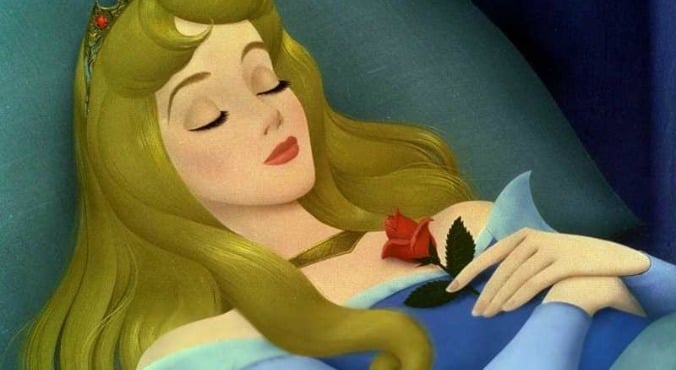
Image: Yep, Sleeping Beauty definitely surpassed her recommended sleep quota
It’s the advice we’ve heard so many times we could say it in our sleep: Get eight hours of shut-eye every night.
While experts recommend we sleep for between seven and nine hours, eight has long been believed to be the magic number when it comes to resting up. Getting significantly less or more sleep than recommended is known to have health consequences, impacting on metabolism, mental wellbeing, cognitive ability, cardiovascular health and more.
It’s no wonder we all get so hung up on how much sleep we’re getting. There’s no feeling more unpleasant than the pang of panic that strikes when you look at your phone and realise it’s well past midnight and you’re still not in bed yet, meaning you’re only going to get five hours of sleep at most and it’s going to take roughly 11 coffees and possibly a Red Bull to keep you awake tomorrow and arrghhhh…
Okay, night owls – time to stop panicking. As it turns out, the big eight mightn’t be the optimal sleep time after all.
Recent research on sleep has indicated we should be aiming for seven hours instead. Speaking to The Wall Street Journal, Professor Shawn Youngstedt from the College of Nursing and Health Innovation at Arizona State University explains: “The lowest mortality and morbidity is with seven hours. Eight hours or more has consistently been showen to be hazardous.”
A number of studies have led to this conclusion, including one last year which found that cognitive performance is highest among people who sleep for seven hours, and declines among those who sleep longer.
